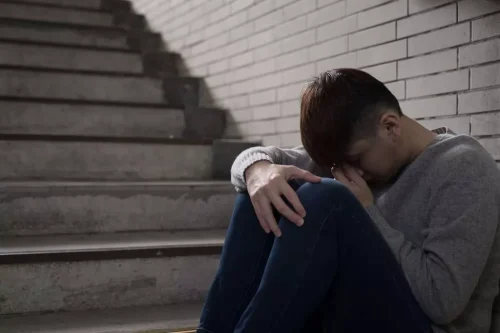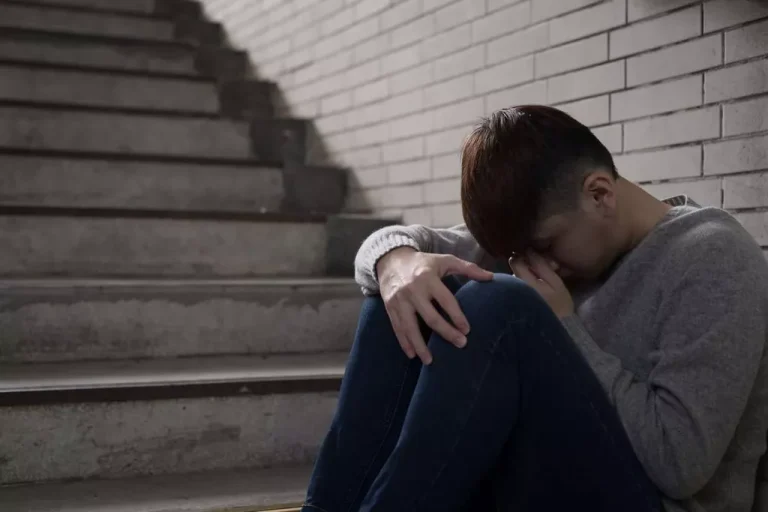
Most cases of delirium tremens require hospitalization in an intensive care unit to recover. If someone’s alcohol addiction is severe, the excitability that this imbalance in neurotransmitters causes can lead to more serious symptoms, like tremors, hallucinations, and even seizures. Alcohol is normalized in our society, but it’s actually a drug that has incredibly harmful effects on our health. Instead of being digested like regular food or drinks, alcohol is quickly absorbed into the bloodstream, which is why Halfway house it makes us feel so uninhibited when we drink it. Alcohol withdrawal is one of the most dangerous types of withdrawal, and can even cause death in rare cases. Getting the proper treatment is critically important when thinking about walking away from alcohol use, so that you can make sure you’re safe and comfortable.
- The alcohol withdrawal timeline varies, but the worst of the symptoms typically wear off after 72 hours.
- Withdrawal symptoms occur during detox, a natural process where the body works to remove toxins from the system and reach a new equilibrium.
- With heavy or long-term use, PAWS (post-acute withdrawal symptoms)—such as anxiety, depression, or emotional numbness—can persist for weeks or months.
- Severe delirium tremens can cause psychosis, which is a disconnect from reality.
- By incrementally lessening the consumption of alcohol, one’s body can acclimate, thereby mitigating the likelihood of experiencing withdrawal symptoms.
- Detoxing from 2C-B can be unpredictable because research on long-term use and withdrawal is limited.
Alcohol Withdrawal Severity Factors
An everyday example of this is caffeine; many of us who are coffee-drinkers know what it feels like to miss our morning cup of joe and find ourselves with a headache during the day. If you are not monitored or treated properly, you may enter severe withdrawal, including experiencing DT. The goals of treating alcohol withdrawal are to reduce symptoms, prevent complications, and help reduce or stop alcohol intake. With this type of alcohol withdrawal, you may not realize that what you see, hear, feel, or smell isn’t real. If you or a loved one has confusion, hallucinations, seizures, or other signs of withdrawal, get medical help right away.
- Post-detoxification treatments for alcohol addiction are medication-assisted treatment (MAT), behavioral therapies, counseling, support groups, rehabilitation programs, and holistic approaches.
- This may involve one one-on-one sessions with a social worker or therapist to help you deal with mental health issues or past traumas.
- The symptoms most commonly begin between 6 to 24 hours after your last drink.
- These symptoms include irritability, depression, anxiety, and sleep disturbances.
- Alcohol dependence or alcohol use disorder can ruin a person’s life, and yet many continue to abuse the drug knowingly to avoid alcohol withdrawal.
Stage 2: Peak Withdrawal
- A long-term strategy incorporating therapy sessions along with family support plays an important role in maintaining abstinence from alcohol and mitigating relapse risks.
- Identifying these risk factors is crucial for determining the appropriate level of care and ensuring safe detoxification.
- Find a supportive friend or family member to be with you while you withdraw and support your new non-drinking lifestyle.
- It should not be used in place of the advice of your physician or other qualified healthcare provider.
- These psychological symptoms can last even longer depending on the individual’s mental health history and relapse prevention strategies.
Also known as DTs, an estimated 2% of people with alcohol use disorder and less than 1% of the general population experience them. After you stop drinking heavy, regular amounts of alcohol, your nervous system needs time to adjust. That can cause uncomfortable physical and mental symptoms, which can sometimes be life-threatening. Get support from your doctor, friends, and family when you’re ready to stop drinking. That way, they can help you manage the discomfort and respond quickly in case of a medical emergency. Symptoms of alcohol withdrawal can range from mild to serious and can sometimes be life-threatening.

Behavioral Treatment
Tell your family, friends, or others if you plan to quit drinking or are going through a withdrawal. If they don’t get worse, you’ll likely feel better in a few Cure for Alcohol Withdrawal Symptoms days as the alcohol leaves your system. Behavioral health treatment for alcohol problems is often (but not always) covered by insurance.
Substance Abuse Treatment
Within six hours of your last drink, mild symptoms of alcohol withdrawal may begin to appear. If you notice your symptoms do not progress or get worse within 24–48 hours, you will likely recover from withdrawal without risk. However, depending on the amount of alcohol typically consumed and the duration of alcohol use, the timeline of symptoms may vary. Misusing alcohol, including binge drinking and heavy alcohol use, puts you at risk for alcohol withdrawal syndrome.

